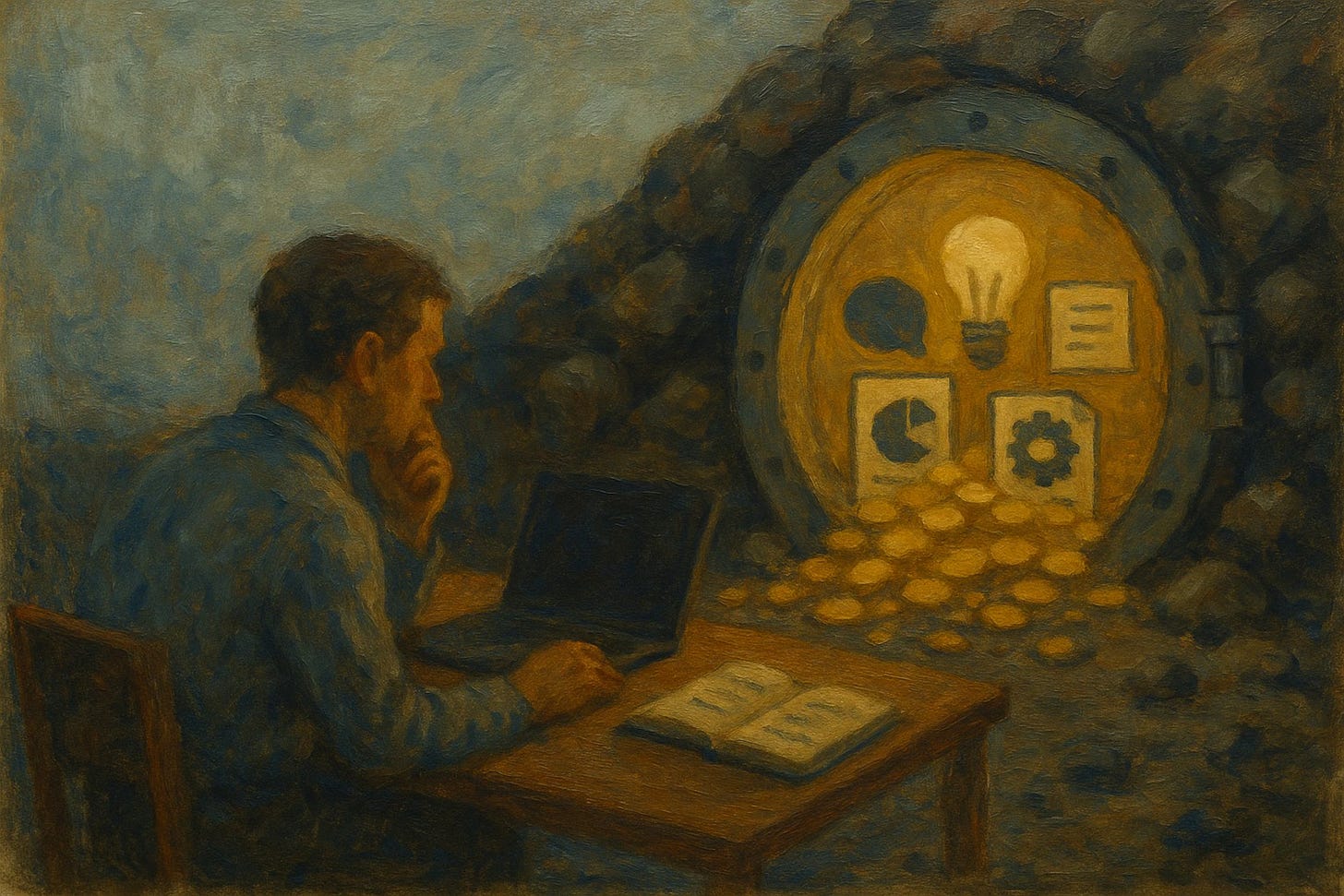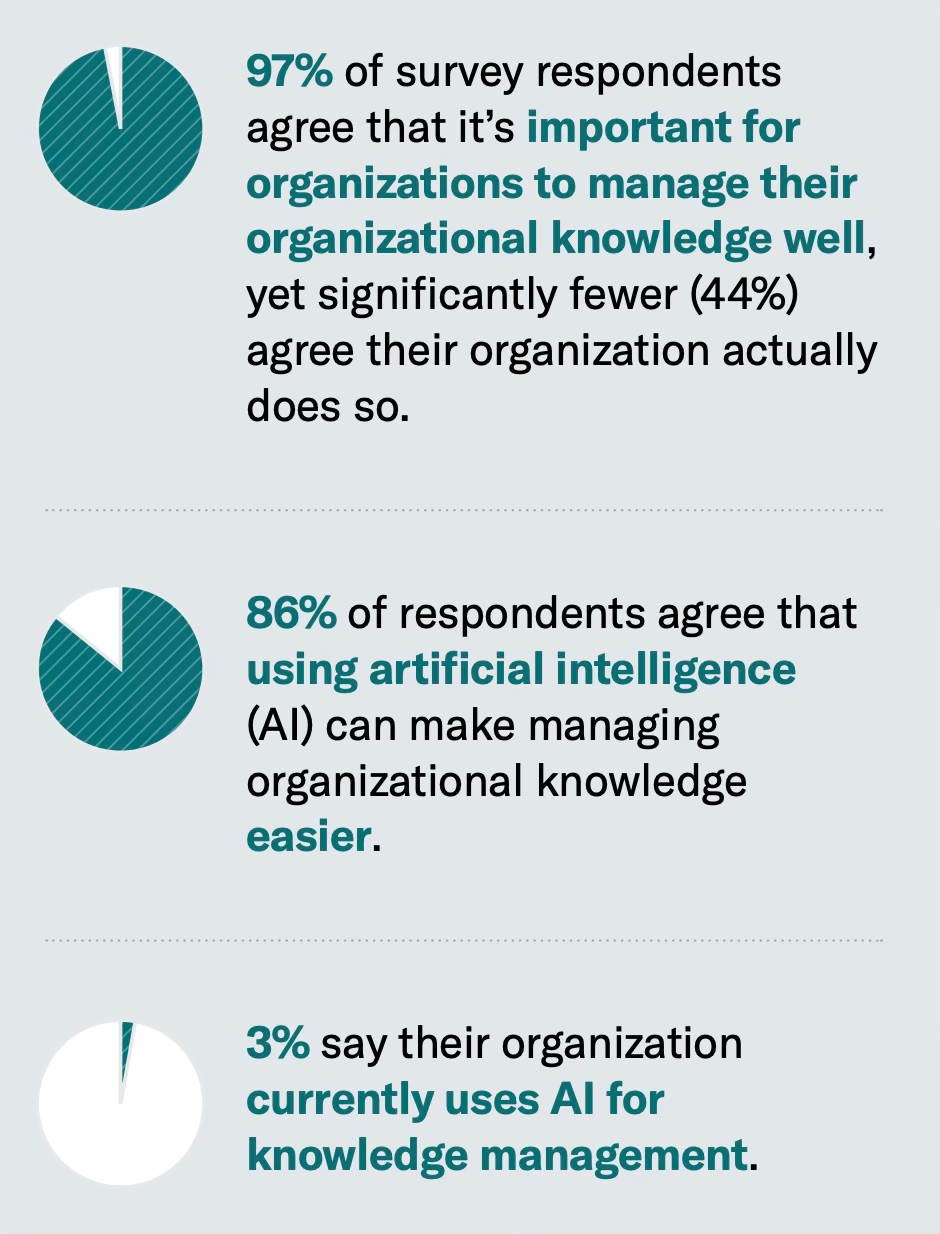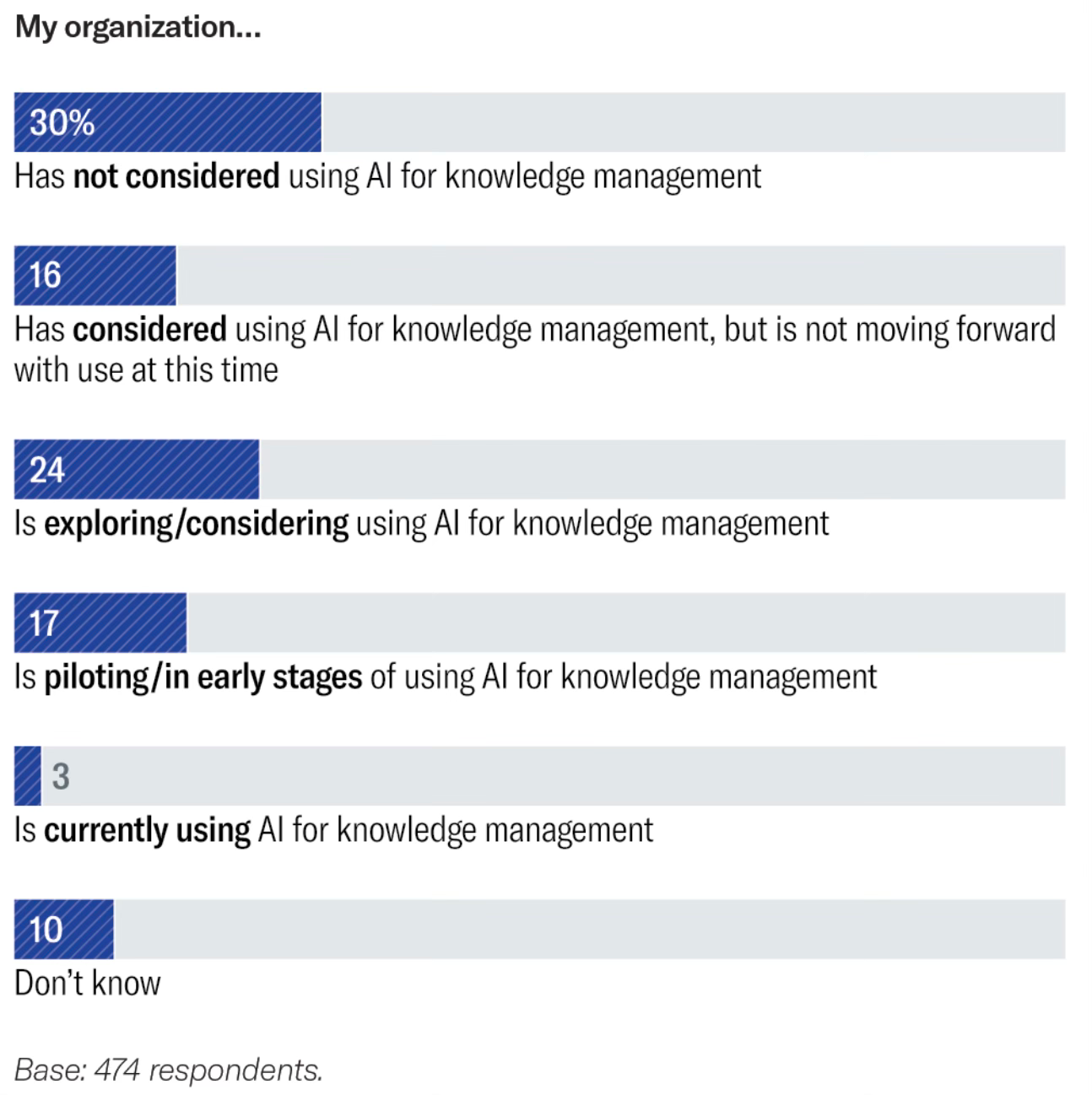Turn Your Team's Hidden Knowledge Into Real Results
Stop losing brilliant insights, and start building on what you already know
Your team knows way more than they're using.
That brilliant solution Sarah figured out last quarter? It's buried in her notes. The client insights from your support team? Scattered across different channels. The process improvements your developers discovered? Living only in their heads.
You're sitting on a goldmine of knowledge, but most of it stays locked away when you need it most. Here's how to change that.
The knowledge leak problem
Picture this: You're working on a project and need to know if anyone's tackled something similar before. You spend an hour searching through Slack, digging through old emails, and asking around. Finally, you discover three people have already solved parts of your problem, but their solutions are scattered across different tools and memories.
Sound familiar?
Most teams lose massive amounts of valuable knowledge every single day. Not because they don't want to share it, but because there's no easy way to capture and find it when it matters.
Research shows only 44% of companies think they manage knowledge well. And here's the kicker: just 3% are using AI to help with it. That's a huge missed opportunity.
What actually works for knowledge sharing
The companies getting this right aren't using fancy systems or complex processes. They're focusing on three simple principles that make knowledge sharing feel natural:
Build around how people actually work. Stop trying to force your team into rigid documentation systems. Instead, make knowledge capture part of what they're already doing. If your team lives in Slack, capture knowledge there. If they're always in meetings, build it into meeting routines.
Make it stupid simple to find things. You shouldn't need a PhD to locate last month's project learnings. Create clear, obvious places where specific types of knowledge live. One source of truth beats five scattered locations every time.
Design for lazy people. The best knowledge systems work even when people are rushed, distracted, or just don't feel like documenting things properly. Templates, automation, and smart defaults do the heavy lifting.
Here's what teams are actually doing: companies like Hinge set aside "Documentation Fridays" where everyone spends time capturing important knowledge. Slack built documentation expectations right into performance reviews. These aren't groundbreaking tactics, they're just consistent habits that compound over time.
Five things you can start today
Want to stop losing valuable knowledge? Here are five moves that'll make an immediate difference:
Pick your single source of truth. When people have questions, where should they look first? Make this crystal clear. One well-maintained knowledge base beats ten scattered wikis.
Map what you actually have. Spend 30 minutes sketching out where different types of knowledge live right now. You'll quickly spot the gaps and overlaps that are slowing your team down.
Create templates for everything. Make it easier to capture knowledge by creating simple templates for common situations: project retrospectives, client calls, technical decisions, process changes. When documenting is easier, it actually happens.
Build knowledge capture into existing routines. Don't create new meetings for knowledge sharing. Add five minutes to sprint reviews, team meetings, or project wrap-ups. Make it part of what you're already doing.
Celebrate the sharers. Notice when someone documents something useful or helps others find information. Public recognition creates more knowledge sharing behavior across your entire team.
Make knowledge work for you
The best teams aren't just collecting information, they're turning it into competitive advantages. When you make knowledge easy to capture and find, magic starts happening.
Projects move faster because people aren't reinventing solutions. New team members get up to speed quickly instead of fumbling around for months. Client work improves because you're building on proven approaches instead of starting from scratch every time.
Your team's collective intelligence becomes your secret weapon. While other companies lose knowledge when people leave or forget, you're building a system that gets smarter over time.
The companies winning right now aren't necessarily the ones with the best individual talent. They're the ones that capture, organize, and actually use what their teams learn. Start building that system today, your future self will thank you.
Ready to turn your team's hidden knowledge into real results? Pick one of those five tactics above and try it this week.
Small changes in how you handle knowledge create massive improvements in how fast you can move.
Want to see how AI can supercharge your knowledge management? Try Needle for free and turn your existing content into intelligent, searchable conversations that help your team find answers instantly.





